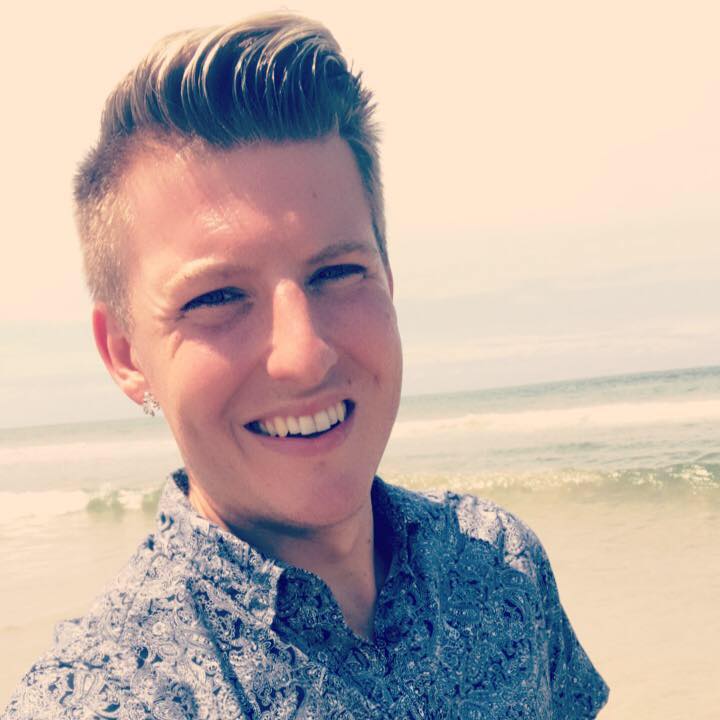“I encourage gay men to take control of their healthcare needs and approach their physicians to begin the conversation about what their specific healthcare needs may be. Open the eyes of our providers and allow them the opportunity to understand that the needs of gay men are important because our lives matter.”
Every year during the last days of September we celebrate National Gay Men’s HIV Awareness Day; a gathering of social networking, education, outreach, and advocacy. Just before the Summer ends, as health educators, we remind gay men and others who may identify in some way with the GLBT community of the risk factors and safer sex practices that could prevent HIV Disease, along with reminding persons who are living with HIV the importance of treatment while providing support to anyone who may need it. However, where are we now? What does this day of awareness mean to the community? Where are we going? How do we get there?
To me National Gay Men’s HIV Awareness Day is a day to remind gay men to take charge of their own health and health care needs. In the Central Florida area, the greatest number of new HIV transmissions are among men who have sex with men, which sometimes may not always include men who identify themselves as gay. Even though gay men are getting tested more often than ever before, there is more that could be done between patient and provider. Most gay men may not be receiving the health care that is best for them, since providers tend to distribute the same care to everyone regardless of who they have sex with. The problem is, health care needs among the different populations will not be the same.
I can remember the last time I visited my doctor. After a very pleasant visit, my vaccinations were updated. Check. I was ordered annual labs. Check. However, that was it. I went ahead a requested to add HIV, STIs, and a Hepatitis panel to my labs. The mood in the room immediately changed and was asked, “Would there be any reason I would think I would need that?” Well obviously, I’m in my mid to late 20’s, there is a good chance I have dabbled in sexual behavior at least once. This was not a conversation we have ever had or even chance of ever coming. We can agree that physicians should spend more time with their clients and ask the appropriate questions, even the ones that are up close and personal. Unfortunately, cultural competency is not a common training for all providers, meaning doctors may not be not know to ask their gay patients when their last Hepatitis C screening was or if they would like to include a HIV screening with their metabolic panel and platelet count for their annual labs. Doctors may not continually advise their patients of safer sex practices during their yearly checkup much less even ask about how their sexual lives are. Having a healthy sex life is just as important eating nutritious food and regular exercise. Pre-Exposure Prophylaxis also known as PrEP, has been proven to be effective in reducing HIV transmissions to anyone who remains adherent. There are MANY providers who do not even know what PrEP is or what it’s benefits are, and thus are not able to provide answers to their interested patients. More and more gay men have been interested in starting PrEP, but most physicians may not even know their client is gay, because they simply don’t ask. A goal in our area has been to increase the prevalence of PrEP so that anyone who feels that it may be a good option for them, can easily access it.
For National Gay Men HIV Awareness Day, I encourage gay men to take control of their healthcare needs and approach their physicians to begin the conversation about what their specific healthcare needs may be. Open the eyes of our providers and allow them the opportunity to understand that the needs of gay men are important because our lives matter. We need to need to feel that we are in a safe, judge free zone to discuss our sexual wellness so that we be equipped with the tools to lower the rates of HIV and other STIs in the community. Since this is not a practice that is currently happening, we as gay men can begin revolutionize this change in the care we are provided.
In the future, I would like to see National Gay Men’s HIV Awareness Day as time for celebration of not just the reduction of HIV transmissions, but gay men feeling empowered to take control not just their own health, but to empower others in the community. By just starting this idea we can begin to live in a time where gay men and other MSM can openly discuss their sexual health without fear of judgement. Without judgement, more and more of us will be engaged in our care and live healthy lives which can lead to even lower HIV transmissions. By fighting stigma and reminding the community that our health matters, more of us can continue to “Take the Test and Take Control!”

